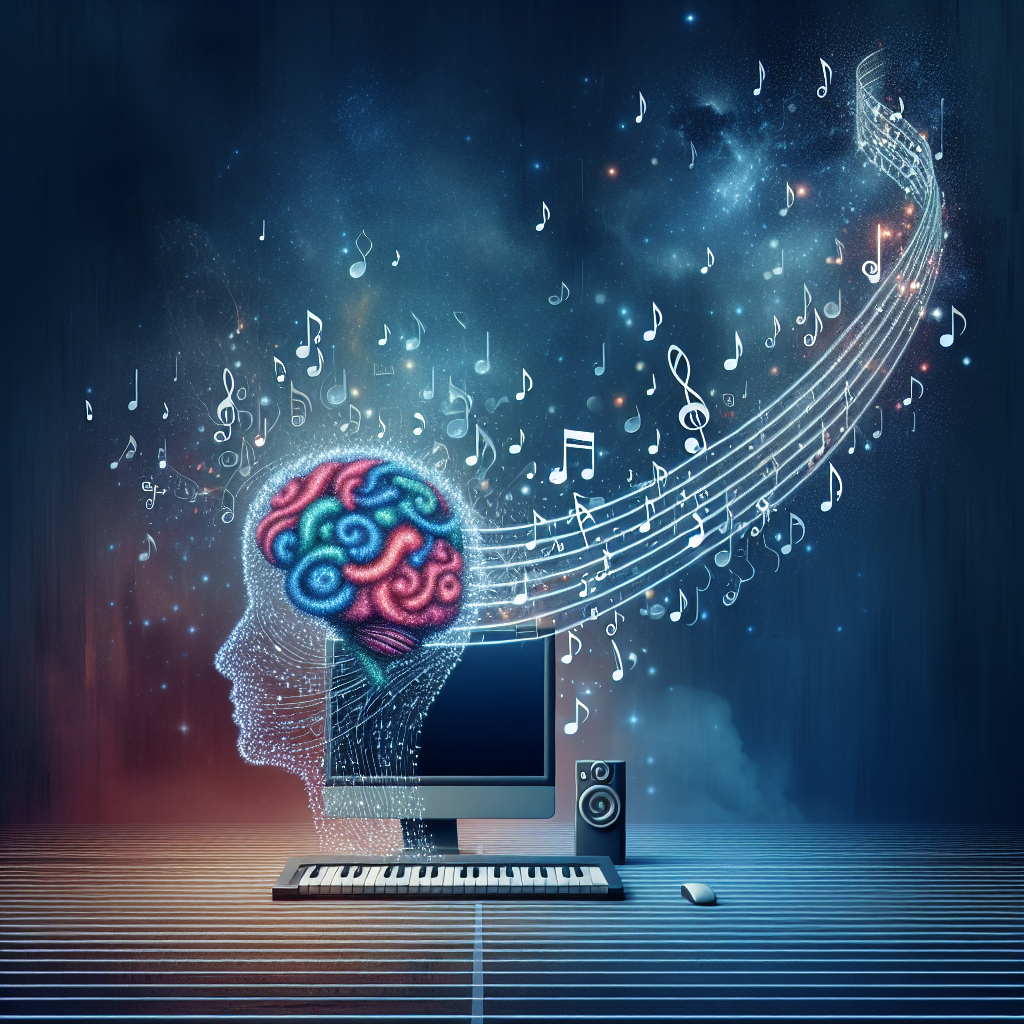In recent years, artificial intelligence has made significant advancements in various fields, including music composition. AI-generated music, also known as algorithmic composition or generative music, is the process of using algorithms and machine learning techniques to create music without human intervention. This groundbreaking technology has the potential to revolutionize the music industry by providing a new way for musicians and composers to create music, and for listeners to discover unique and innovative music.
From Concept to Composition: How AI-Generated Music Works
The concept of AI-generated music revolves around the idea of teaching machines to understand and replicate the patterns and structures found in music. This involves training algorithms on large datasets of music to learn the rules and conventions of music theory, harmony, rhythm, and melody. Once the algorithms have been trained, they can generate new musical compositions based on the patterns and styles they have learned.
There are several different approaches to AI-generated music, each with its own strengths and limitations. One popular approach is using deep learning techniques, such as neural networks, to analyze and generate music. Neural networks are a type of machine learning algorithm inspired by the way the human brain works, with interconnected layers of artificial neurons that can learn from data and make predictions.
Another approach is using evolutionary algorithms, which mimic the process of natural selection to evolve and optimize musical compositions over time. These algorithms generate a population of musical compositions, evaluate them based on predefined criteria, and then select and mutate the best compositions to create new generations of music.
In addition to these approaches, researchers have also developed AI systems that can analyze and classify music based on its emotional content, genre, or other characteristics. This technology can help musicians and composers discover new music or generate music that fits a specific mood or style.
AI-generated music can be created in a variety of styles and genres, from classical and jazz to electronic and pop. The technology can produce full-length compositions, loops, melodies, harmonies, and rhythms, allowing musicians and composers to use AI as a tool to enhance their creativity and productivity.
Benefits of AI-Generated Music
AI-generated music offers several benefits to musicians, composers, and listeners. One of the main advantages is the ability to quickly generate new ideas and explore different musical styles and genres. AI algorithms can generate vast amounts of music in a short amount of time, providing a wealth of inspiration for musicians and composers.
Another benefit is the potential for collaboration between humans and machines. AI-generated music can be used as a starting point for human musicians to develop and expand upon, creating new and unique compositions that blend the creativity of humans with the efficiency of AI.
AI-generated music also has the potential to democratize the music industry by providing a platform for emerging artists and musicians to showcase their work. With AI technology, musicians can create high-quality music without the need for expensive recording studios or equipment, making it more accessible to a wider audience.
Frequently Asked Questions about AI-Generated Music
Q: Can AI-generated music replace human musicians and composers?
A: While AI technology has made significant advancements in music composition, it is unlikely to replace human musicians and composers entirely. AI-generated music can be a valuable tool for musicians and composers to enhance their creativity and productivity, but human intuition, emotion, and artistic expression are irreplaceable aspects of music creation.
Q: Is AI-generated music considered original or plagiarized?
A: The legality and ethics of AI-generated music are still being debated in the music industry. While AI algorithms can create original compositions based on patterns and styles they have learned, there are concerns about copyright infringement and intellectual property rights. As AI technology continues to evolve, it will be important for musicians, composers, and AI developers to establish guidelines and regulations for the use of AI-generated music.
Q: Can AI-generated music evoke emotions and connect with listeners?
A: AI-generated music has the potential to evoke emotions and connect with listeners in the same way that human-created music does. AI algorithms can analyze and classify music based on its emotional content, allowing them to generate music that fits a specific mood or style. While AI-generated music may lack the personal touch and emotional depth of human-created music, it can still resonate with listeners and create meaningful experiences.
Q: How can musicians and composers use AI-generated music in their work?
A: Musicians and composers can use AI-generated music in a variety of ways, depending on their creative goals and preferences. AI algorithms can generate new musical ideas, provide inspiration for compositions, and help musicians explore different styles and genres. Musicians can also collaborate with AI systems to create new and innovative music that blends human creativity with AI technology.
In conclusion, AI-generated music is a groundbreaking technology that has the potential to revolutionize the music industry. By using algorithms and machine learning techniques, musicians and composers can create new and innovative music compositions that push the boundaries of creativity and imagination. While there are still challenges and questions surrounding the use of AI-generated music, the technology offers a wealth of opportunities for musicians, composers, and listeners to explore new musical horizons.

